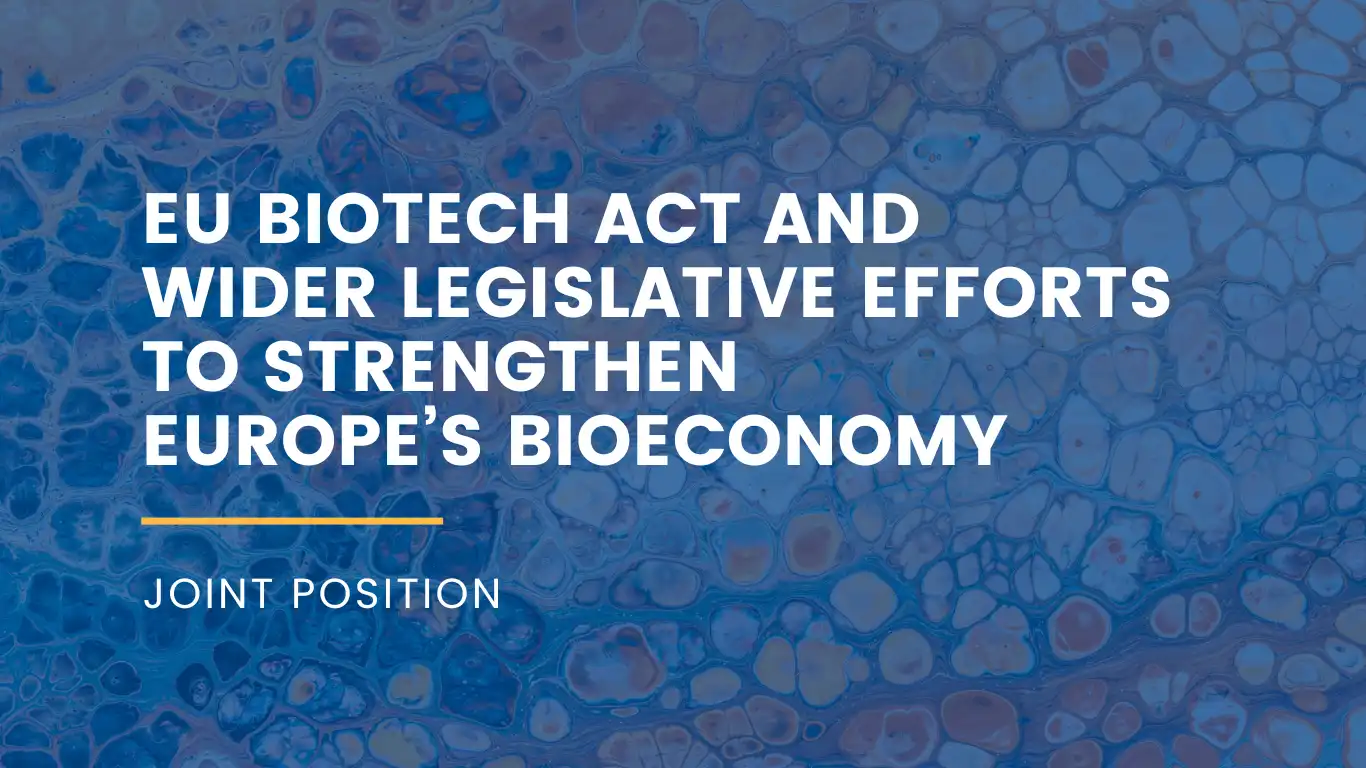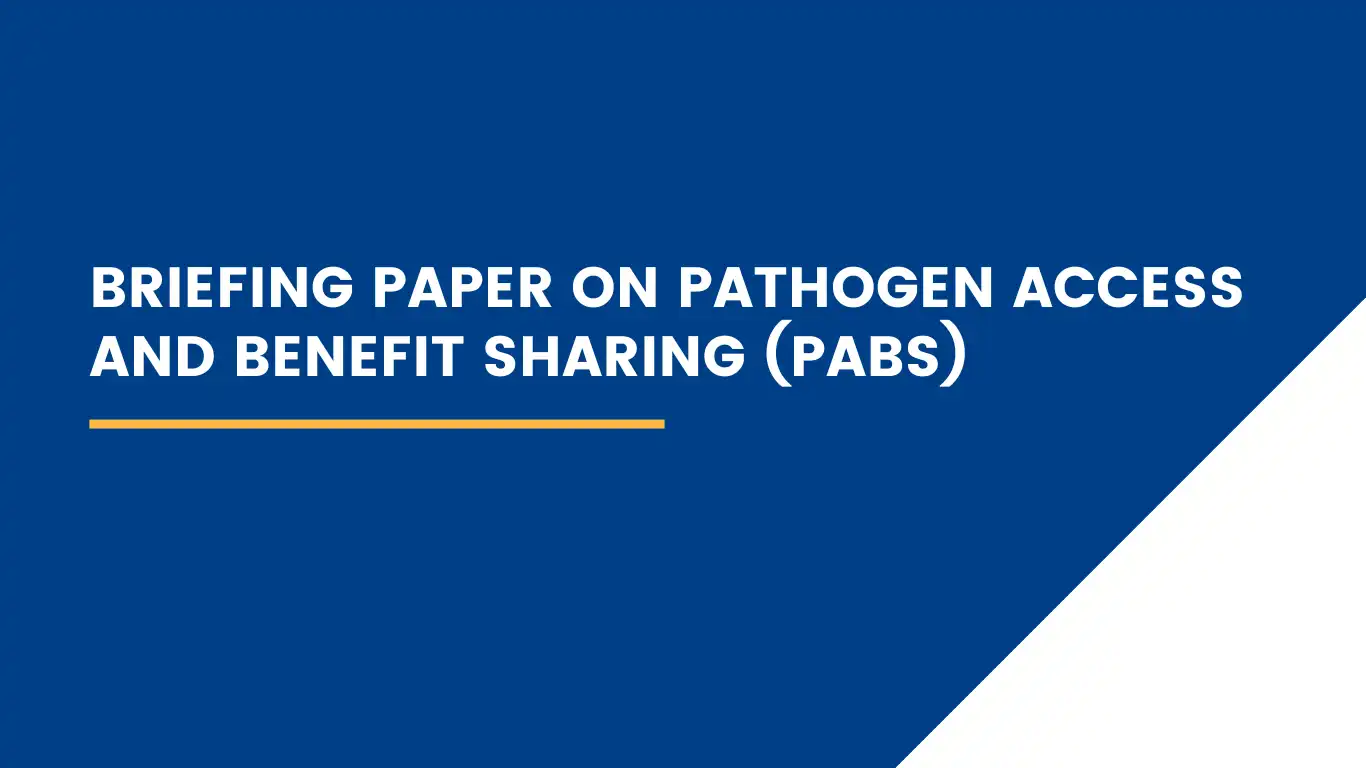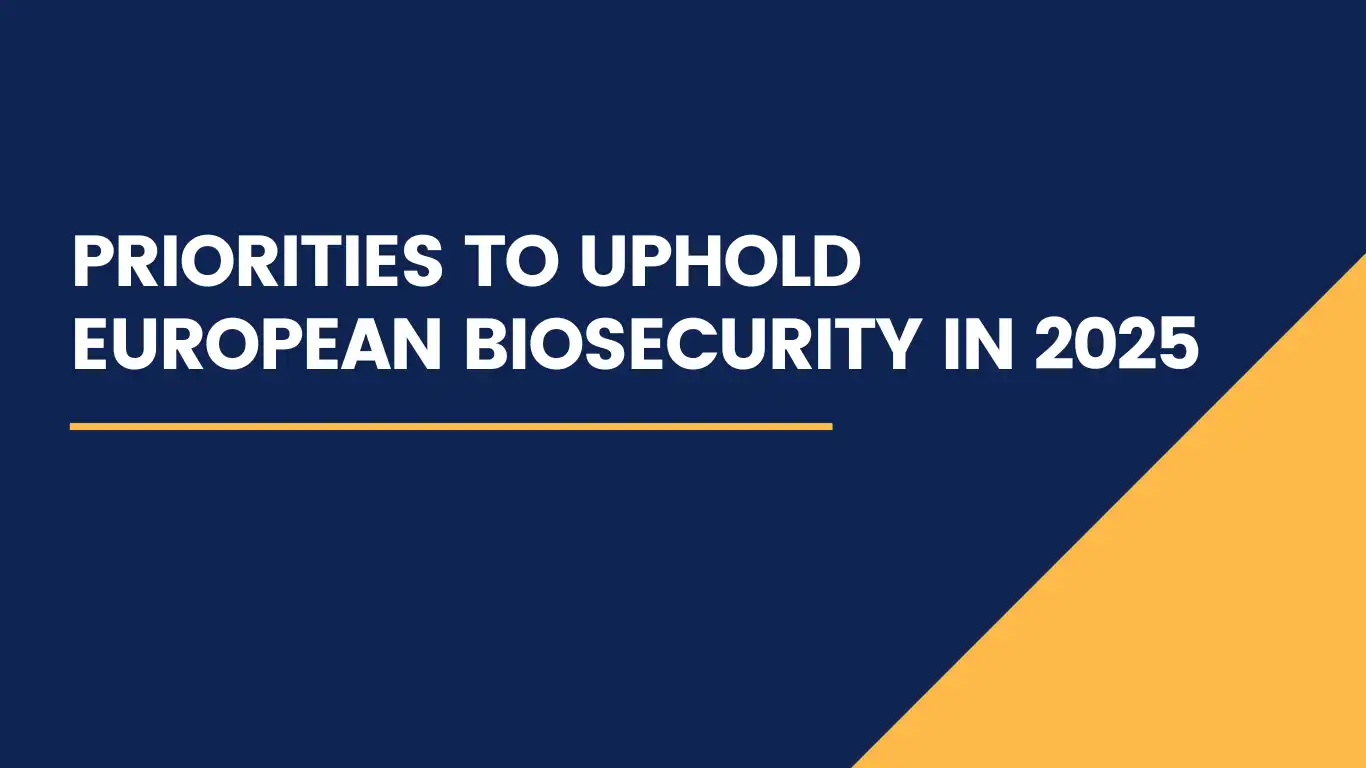We, the undersigned from the synthetic biology and health security communities, strongly support the European Commission’s initiative to establish a European Biotech Act, and other actions to advance safe innovation. Biotechnology and biomanufacturing are central to Europe’s competitiveness, resilience, and ability to address global challenges in health, climate, food security, and energy. Realising this potential requires an enabling regulatory framework that both reduces fragmentation and increases predictability, while embedding risk management and biosecurity by design. Without this, Europe risks lagging behind global competitors, undermining its sovereignty, and leaving vulnerabilities in its supply chains.
A priority area is the governance of nucleic acid synthesis screening. Leading European industry actors, particularly those engaged in international consortia such as the International Gene Synthesis Consortium (IGSC) and in the development of ISO 20688-2, already perform sequence screening and customer due diligence as a routine business practice. However, current screening practices across the EU remain fragmented and inconsistently applied: many companies still lag behind.
The status quo exposes Europe to biosecurity risks, regulatory uncertainty, and an uneven playing field for responsible providers. Knowing what nucleic acid sequences are being ordered and by whom is essential for safeguarding biotechnology. Sequence screening, backed by customer screening, are not simply a compliance obligation, they are an enabler of scale-up and investment, trade, innovation access and security, and trusted scientific collaboration. Far from being a brake on research and commercialisation, robust screening provides a market advantage by ensuring that European innovation is recognised globally as safe, reliable, and investment-ready. There are already opportunities for Europe to take a leadership position in this area, considering its ambitious investments in both biotech and AI.
Forthcoming legislation and initiatives, including the European Biotech Act, are an opportunity for Europe to assume a leadership position. By embedding robust, harmonised sequence screening standards into the Act, the EU can simultaneously foster innovation, strengthen trust, and secure global leadership for the EU as a global standard-setter.
Codifying sequence screening will also unlock access to public and private funding streams, making compliance a direct gateway to Horizon Europe and FP10 programmes. Linking research and innovation financing to screening obligations ensures Europe safeguards competitiveness and ensures its synthesis providers are not undercut by companies and providers operating with less rigorous screening practices.
- The Challenge: Fragmentation in Screening Practices
Despite voluntary standards (IGSC Harmonised Screening Protocol, ISO 20688-2, WHO 2022 guidance) and new national initiatives (US 2023 guidance and 2024 Framework; UK 2024 guidance; US 2025 Executive Order), screening adoption across Europe remains uneven, and there is a risk that Member States embed different approaches across the EU27. Smaller providers lack incentives and capacity, leaving gaps in enforcement and undermining responsible industry actors.
This fragmentation directly undermines regulatory predictability, trust in supply chains, security, and preparedness. The EU Biotech Act must address this challenge head-on by moving from a fragmented patchwork of voluntary practices to level the playing field across the EU’s single market by developing a coherent, enforceable, and internationally-aligned system.
- The Solution: A Phased Pathway to Widespread Screening
The signatories of this joint position call for the EU Biotech Act to create a phased, enforceable pathway for nucleic acid synthesis screening built around four mutually reinforcing pillars:
First, the EU should strengthen standards by advancing internationally recognised frameworks such as ISO 20688-2 by addressing current gaps and ensuring they are applicable across providers of all sizes. This includes developing practical guidance tailored to SMEs as well as large-scale providers.
Second, the EU should promote universal adoption by integrating screening requirements into licensing, procurement, and oversight mechanisms. This should explicitly link compliance to eligibility for Horizon Europe and FP10 funding, thereby ensuring that only providers meeting high biosecurity standards benefit from EU support. Public procurement rules should prioritise certified providers, while SMEs should receive targeted assistance in the form of training, tools, and transitional incentives to ease compliance costs.
Third, the EU must strengthen international coordination. Aligning with US, UK, ISO, WHO, and ASEAN frameworks will prevent regulatory divergence, enable interoperability, and facilitate trusted trade and research partnerships.
Fourth, the EU should phase in enforceable standards. Early adopters could be incentivised through reduced liability, preferential access to grants, and greater market visibility, before transitioning to mandatory compliance verified through third-party audits, blind testing, and transparent registries of certified providers.
- Embedding Risk Management and Security by Design
To remain future-proof, the Biotech Act should institutionalise continuous risk monitoring and foresight. A European Biorisk Expert Group could be tasked with assessing emerging threats at the AI–biology interface, providing regular updates to screening standards, and ensuring that biosecurity measures remain responsive, proportionate, and internationally aligned.
Conclusion
The European Biotech Act and other actions to advance safe innovation represent a critical opportunity for Europe to secure its biotechnology future. By embedding harmonised DNA synthesis screening standards, leveraging policy tools to drive adoption, and ensuring continuous improvement through multi-stakeholder governance, the EU can safeguard innovation against misuse, strengthen its bioeconomy and supply chain resilience, and reinforce sovereignty and competitiveness.
Positioning the EU as a global standard-setter is central to this vision. By codifying robust and enforceable screening practices, Europe will not only reduce fragmentation and compliance costs but also set the benchmarks for responsible biotechnology worldwide. Trusted, safe innovation should continue to be a hallmark of European science and industry — providing a competitive edge, attracting investment, and ensuring sustainable access to global markets.
The synthetic biology community stands ready to contribute technical expertise and practical implementation pathways to support this effort.
Signed,
Professor Yoshua Bengio (Université de Montréal and Mila – Quebec AI Institute)
Professor Kevin Esvelt
Aclid
BioLegio
The Centre for Longterm Resilience
Elegen Bio
Engineering Biology Research Consortium (EBRC)
EUSynBioS
International Biosecurity and Biosafety Initiative for Science (IBBIS)
International Gene Synthesis Consortium (IGSC)
Johns Hopkins Center for Health Security
Pandemic Action Network (PAN)
Pour Demain
Ribbon Bio
RTX BBN Technologies
Twist Bioscience
—
If you are a part of the synthetic biology and health security communities and wish to sign this joint position, please contact us.




